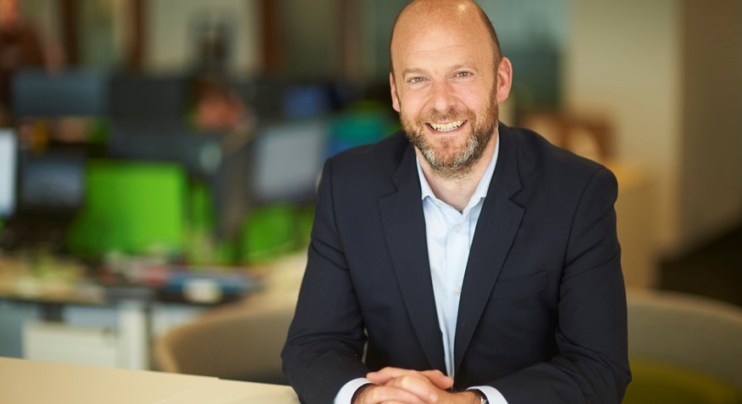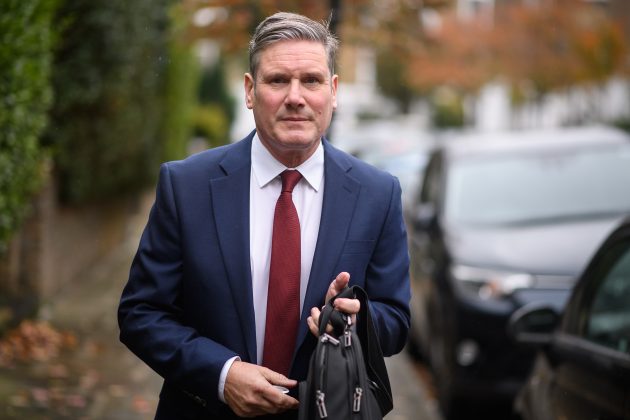CBI deputy: A no-deal Brexit on top of coronavirus is ‘very, very worrying’

For a while in the summer it looked as though the CBI’s annual conference – a highlight of the business calendar which kicks off today – could be celebrating an economy on its way back to health.
But a surge in coronavirus restrictions and new lockdowns across the country mean it is likely to be a bit of a gloomier affair.
Adding to the worries facing companies, says the business lobby group’s deputy director general for policy Josh Hardie, is the fear of a no-deal Brexit.
The UK is still negotiating with the EU on a post-Brexit trade deal. The deadline is looming, however, as any agreement would need to be implemented before the transition period ends at the start of January.
When combined with the coronavirus pandemic, Hardie says, “no deal makes life very, very worrying indeed”.
He says many companies have “already had their resilience stripped away” by Covid-19. They are also now worried about “their supply chain, the bureaucracy, the red tape they’re going to have to deal with, the markets they lose”.
“Draw your own conclusion about what that’s going to do to the UK economy, which is already under such stress.”
Yet Hardie, who joined the CBI in 2016 from a job as a director at Tesco, praises the government’s – or rather the Treasury’s – economic response to coronavirus.
Chancellor Rishi Sunak has borrowed a record £209bn so far this year to fund the furlough scheme and business grants, among other programmes.
Hardie says the government is right to have changed tack on various policies. He cites Sunak’s move to make the new job support scheme less onerous for employers.
“I think credit to the government here. They haven’t seen that as a U-turn, they’ve seen that as ‘this is the life we’re in’.”
Coronavirus test and trace ‘needs to be better’
Yet he says there is room for improvement, particularly on test and trace. The coronavirus tracking programme has been beset by problems, and criticised by the government’s own scientists.
“The bottom line is it needs to be better, everyone knows that,” Hardie says.
He says getting the virus under control is crucial for the economy and bringing clarity to businesses.
The CBI’s annual conference comes at a time of flux in more ways than one. It is solely online this year, and will run for three days rather than one.
It also marks the departure of the current director general Dame Carolyn Fairbairn. She has led Britain’s biggest business lobby group for the last five years, through tumultuous times for the country and economy.
Fairbairn will be replaced by Tony Danker, the current head of productivity quango Be the Business.
The conference will also feature new Labour leader Sir Keir Starmer’s first big speech to the CBI.

Hardie says the CBI’s relationship with Labour has so far been “very, very constructive”.
“Clearly we are at the early days of a new administration. It may or may not be different as we approach another general election.”
CBI changes tack on spending
Back in 2009, a year into the financial crisis, the CBI made the rare move of backing the opposition Conservative’s plans for swingeing cuts to government spending. It warned the ballooning public debt could damage the economy, and backed austerity.
Things have changed. Hardie says the government should now “focus on growth and job protection”.
“Then when we’re in a stable place we can have a sensible conversation about the best way to manage debt.”
He says the CBI is not focused on cuts to “corporation tax or things like that” but rather wants tax deferrals for VAT and business rates “because they’re [about] cash flow now”.
“The most important thing at the moment is to save businesses cash.”
Clarity central to helping firms over Covid
When it comes to coronavirus restrictions, Hardie says clarity is key. “What we need to do is make sure businesses understand what businesses are able to do and what [support] they’re due. I think there’s a bit of work still to be done on that.”
He says an “exit strategy” from restrictions is also vital. This should focus on helping businesses out of restrictions but making sure “those rates stay low”.
A Brexit deal is also key to growth and saving jobs, he says.
“Our very, very clear simple message is: A deal is possible, compromises can be made.
“There are precious few days left, every day counts, so get that deal over the line for the sake of all the economies across Europe.”